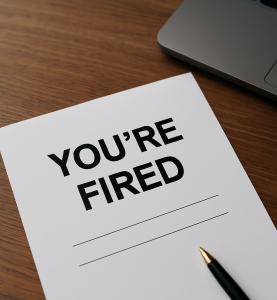During the 3 November election, California residents were given the opportunity to shape the future of the gig economy in America by voting on the Proposition 22 ballot measure. Uber, Lyft, and DoorDash spent over $205 million on the “Yes on 22” campaign – making it the most expensive ballot measure in California’s history – in the name of overturning a key component of the state’s labour laws. Now that it has been legally approved with 58% of the vote, what consequences will there be for the gig economy and companies that rely on it?
What’s In the Law?
In its most basic sense, Prop 22 provides an alternative model to “AB 5”, a California law that was signed in September 2019. The law required companies to use an “ABC test” to classify their workers, meaning that workers could only be classified as independent contractors if they were: A) free from the company’s control; B) conducting work that was not key to the company’s business; and C) maintaining their own independent business in the same industry. If one or all of those conditions were not met, then companies would have to classify their workers as employees. This posed a critical issue to the aforementioned ride-hailing companies and several other organisations that had built their business models on the premise that their workers were treated as independent contractors.
When designated as independent contractors, workers have a different relationship with their employer and are ineligible for several benefits that a full employee would be entitled to. Employers are not responsible for employers’ costs including health insurance, unemployment insurance, Social Security, paid sick days and overtime. When working for ride-hailing companies, contracted drivers are expected to supply and maintain their own gas; Uber and Lyft do not pay for workers’ car repairs, petrol or similar expenses. At the same time, the companies retain their ability to set drivers’ rates and the commission that they pay themselves, usually in the range of 20% to 30%.
... Workers have a different relationship with their employer and are ineligible for several benefits that a full employee would be entitled to.
Though their designation as contractors will not change under Proposition 22, the new law will guarantee new benefits to those working for ride-hailing companies. A wage floor will be implemented to guarantee that drivers receive at least 120% of the local or statewide minimum wage, along with other limited benefits such as car insurance and health subsidies consistent with employer contributions under the Affordable Care Act for drivers working 15 or more hours per week. They will also retain a wide degree of freedom to choose when, where and how much they work.
Further to the above specifications, Prop 22 includes a provision requiring a seven-eighths majority of the California state legislature to agree upon any amendment, all but ensuring the measure cannot be overturned.
What’s Next?
Legal scrutiny of the practicality of the new law is now underway. Some analysts have raised concerns about the minimum wage protection offered in the measure, which applies only to an employee’s “engaged time”, meaning time in which the driver is on a trip with a passenger or travelling to pick up a passenger. A study from the UC Berkeley Labor Center estimates that workers could be legally allowed to make only $5.64 per hour under the stated conditions.
It is estimated that, moving forwards, workers will no longer be able to effectively seek restitution for wage theft against gig economy companies, as these disputes will largely be solved through private arbitration. As California proposes legislation mandating a greater use of electric vehicles on ride-hailing trips, the burden of changing vehicle types is also likely to fall on individual drivers rather than their employers.
Since the success of the "Yes on 22" campaign, Lyft and DoorDash have signaled their intention to bring the model it presents to other states.
[ymal]
“Lyft stands ready to work with all interested parties, including drivers, labor unions and policymakers, to build a stronger safety net for gig workers in the US," Anthony Foxx, chief policy offer at Lyft, stated after Prop 22’s approval by voters.
Meanwhile, opposition groups such as Gig Workers Rising have declared that they will continue to work towards drivers’ classification as full employees entitled to the accompanying benefits.
We can expect similar ballot measures to be advanced in different states, potentially also by digital companies with a heavy reliance on contractors. In the meantime, the full scope of Prop 22’s practical effects will only be realized when it goes into effect on December 22.




















